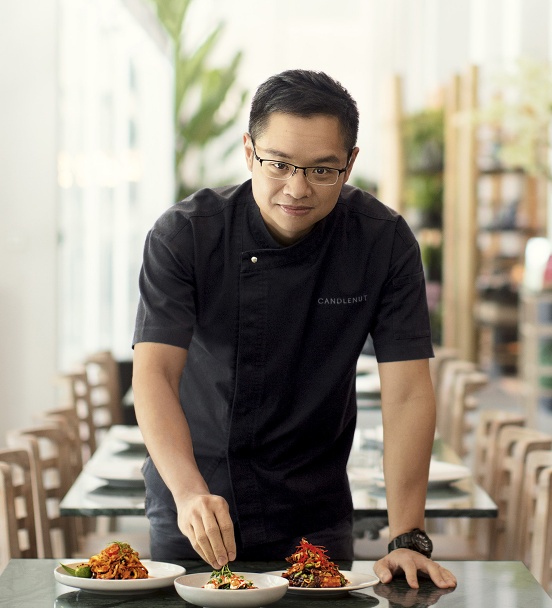
Michelin-starred chef
One of a select handful of Singaporean chefs to have won a Michelin Star—which he has retained since 2016—Malcolm is constantly looking for ways to both preserve and innovate the flavours of his youth. As a child, he grew up with the smell of spices from his grandmother’s traditional Peranakan dishes wafting through his doorway.
When Malcolm realised that life chained to a desk wasn’t for him, he turned his lifelong passion for food into a career in the kitchen. Upon securing a Miele-Guide At-Sunrice scholarship and graduating from the At-Sunrice GlobalChef Academy, he worked his way from humble line cook to his current role as chef-owner of Peranakan restaurant Candlenut.
“There’s a reason why we’re called a ‘kitchen brigade’. When service time hits, the kitchen turns into a warzone,” Malcolm shares. “But I love the cuts, the burns, the camaraderie.” It’s not just the adrenaline of the kitchen that drives his passion: to Malcolm, food is a way of creating a deep connection with both friends and strangers. “I believe the essence of Peranakan food is really about people,” he says. “A traditional Peranakan meal can take a week to prepare. Food is love, and I hope people can feel that.”
From local wet markets to suburban neighbourhoods that provide him with culinary inspiration, Malcolm Lee invites you to experience a chef’s view of Singapore.
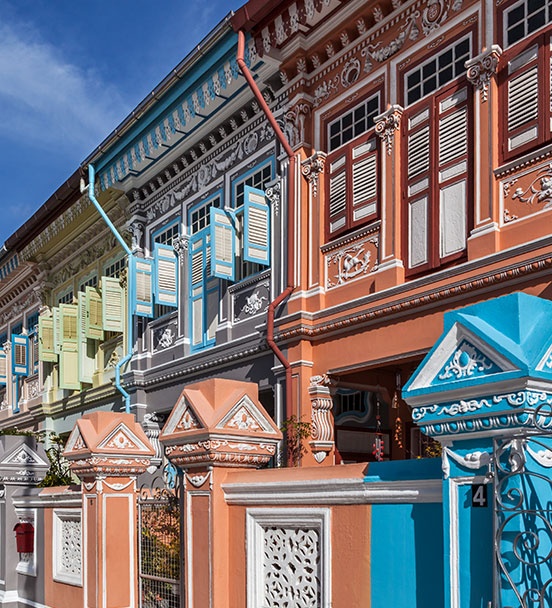
Malcolm finds visual inspiration for his dishes in the Peranakan architecture of the Katong and Joo Chiat neighbourhood: “I love the shophouses in Katong and Joo Chiat: All these little intricate touches on the wall and staircases. They really help me understand how Peranakan food should be.”
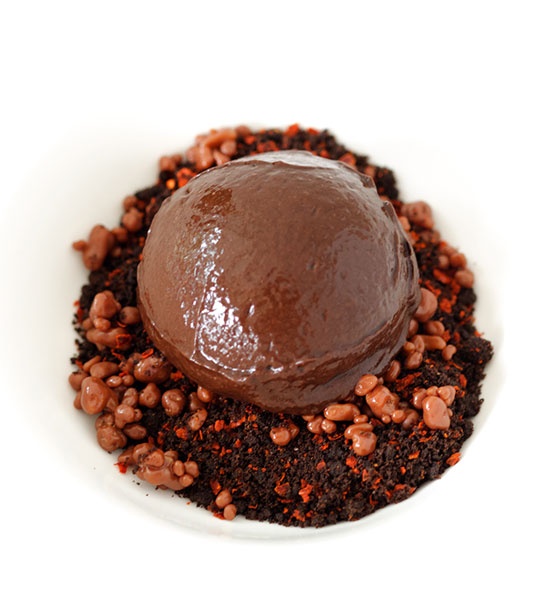
As an innovative Peranakan chef, Malcolm is well aware of resistance to his dishes. “Doing Peranakan food in Singapore is tough,” he laughs. “It can make you feel like a target board.” Dishes like Candlenut’s buah keluak (black nut indigenous to Southeast Asia) ice cream are proof of how Malcolm pushes culinary boundaries.
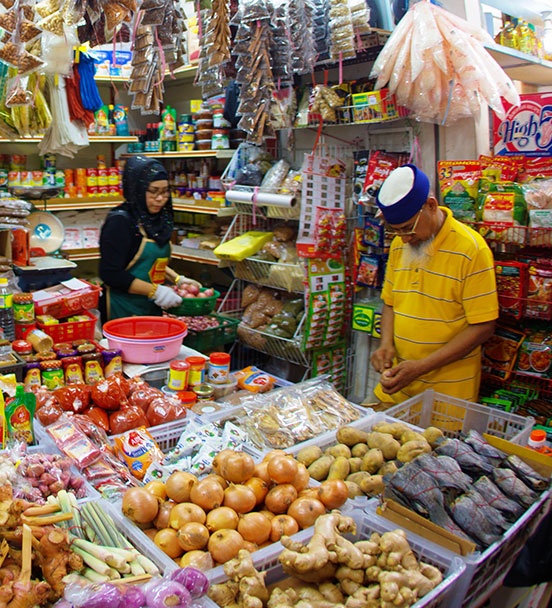
To understand Malay influence on nonya food, Malcolm suggests that you visit Geylang Serai Market. Its hawker centre serves up dishes from the chef’s childhood: “Peranakan food is very similar to Malay food. I grew up eating rice and sambal, and this is the place to go to find similar dishes.”
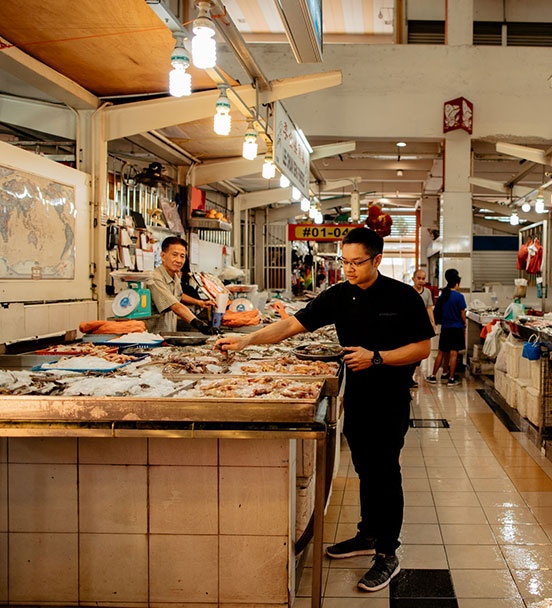
“Peranakan food isn’t just about food, it’s about connecting with people.” A believer in food as a gateway to human connection, Malcolm still visits his old stomping ground at Tekka Market, where he sources for fresh seafood and other local produce, from long-time vendors whom he now calls friends.
Check Out